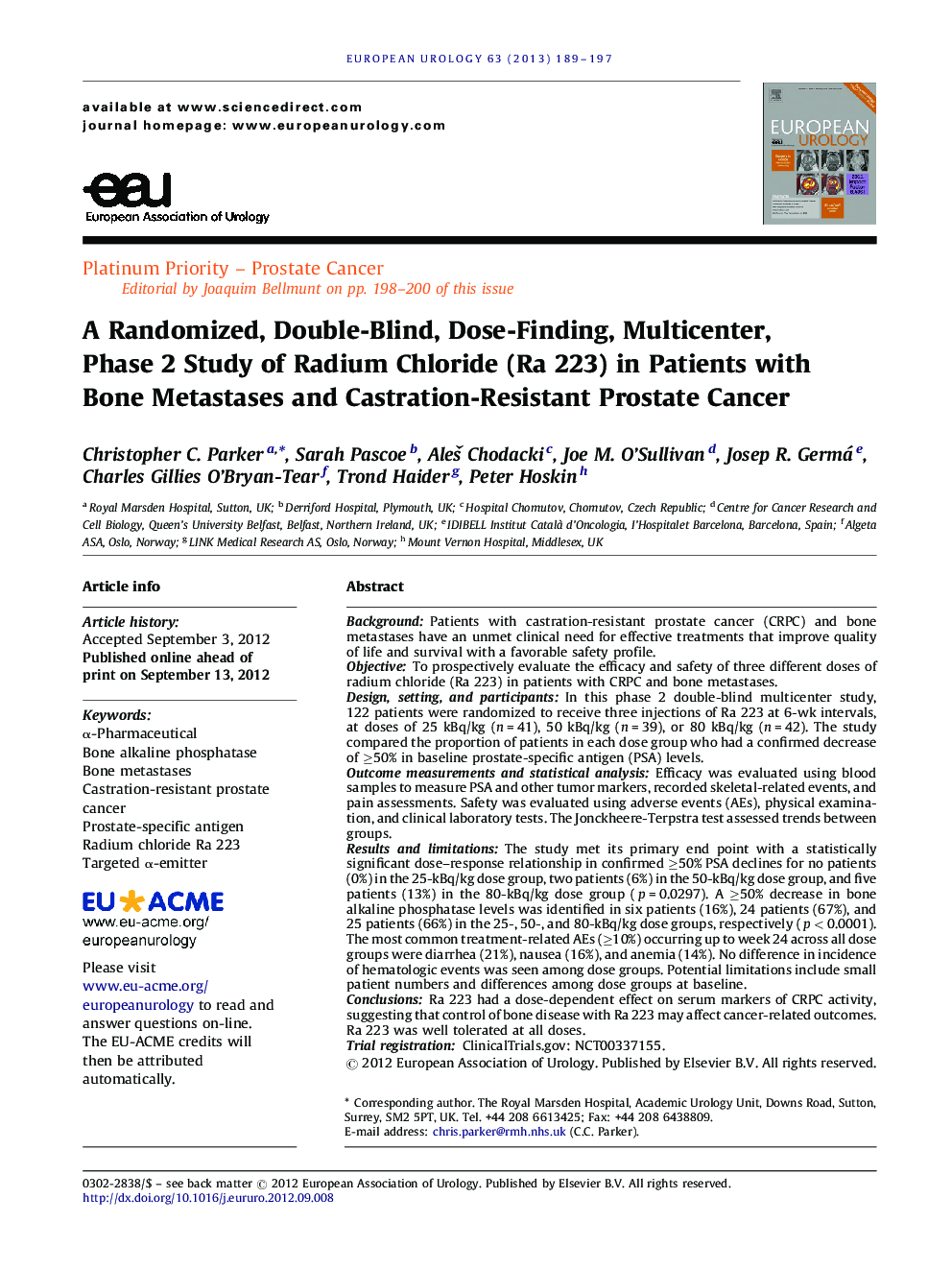| Article ID | Journal | Published Year | Pages | File Type |
|---|---|---|---|---|
| 3926361 | European Urology | 2013 | 9 Pages |
BackgroundPatients with castration-resistant prostate cancer (CRPC) and bone metastases have an unmet clinical need for effective treatments that improve quality of life and survival with a favorable safety profile.ObjectiveTo prospectively evaluate the efficacy and safety of three different doses of radium chloride (Ra 223) in patients with CRPC and bone metastases.Design, setting, and participantsIn this phase 2 double-blind multicenter study, 122 patients were randomized to receive three injections of Ra 223 at 6-wk intervals, at doses of 25 kBq/kg (n = 41), 50 kBq/kg (n = 39), or 80 kBq/kg (n = 42). The study compared the proportion of patients in each dose group who had a confirmed decrease of ≥50% in baseline prostate-specific antigen (PSA) levels.Outcome measurements and statistical analysisEfficacy was evaluated using blood samples to measure PSA and other tumor markers, recorded skeletal-related events, and pain assessments. Safety was evaluated using adverse events (AEs), physical examination, and clinical laboratory tests. The Jonckheere-Terpstra test assessed trends between groups.Results and limitationsThe study met its primary end point with a statistically significant dose–response relationship in confirmed ≥50% PSA declines for no patients (0%) in the 25-kBq/kg dose group, two patients (6%) in the 50-kBq/kg dose group, and five patients (13%) in the 80-kBq/kg dose group (p = 0.0297). A ≥50% decrease in bone alkaline phosphatase levels was identified in six patients (16%), 24 patients (67%), and 25 patients (66%) in the 25-, 50-, and 80-kBq/kg dose groups, respectively (p < 0.0001). The most common treatment-related AEs (≥10%) occurring up to week 24 across all dose groups were diarrhea (21%), nausea (16%), and anemia (14%). No difference in incidence of hematologic events was seen among dose groups. Potential limitations include small patient numbers and differences among dose groups at baseline.ConclusionsRa 223 had a dose-dependent effect on serum markers of CRPC activity, suggesting that control of bone disease with Ra 223 may affect cancer-related outcomes. Ra 223 was well tolerated at all doses.Trial registrationClinicalTrials.gov: NCT00337155.
